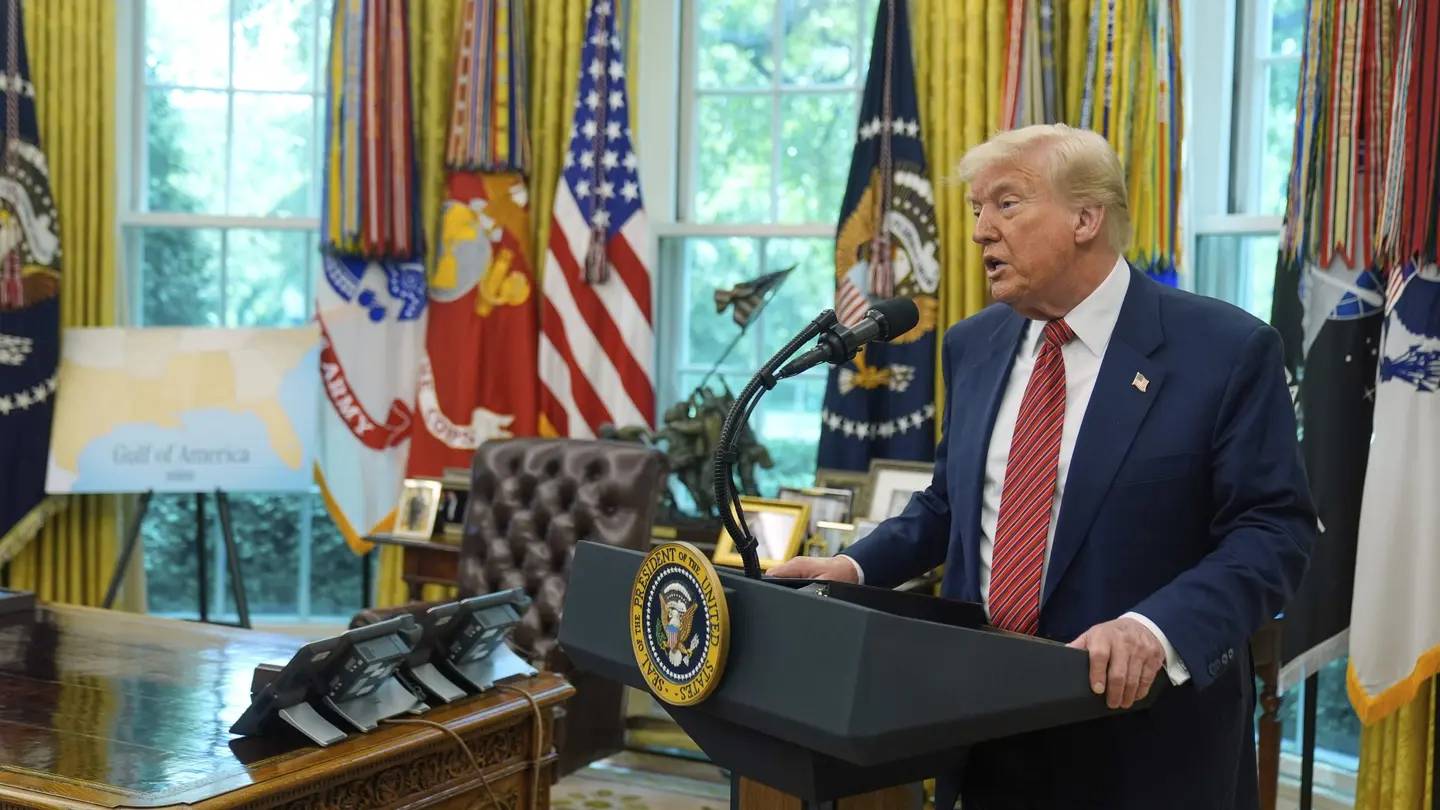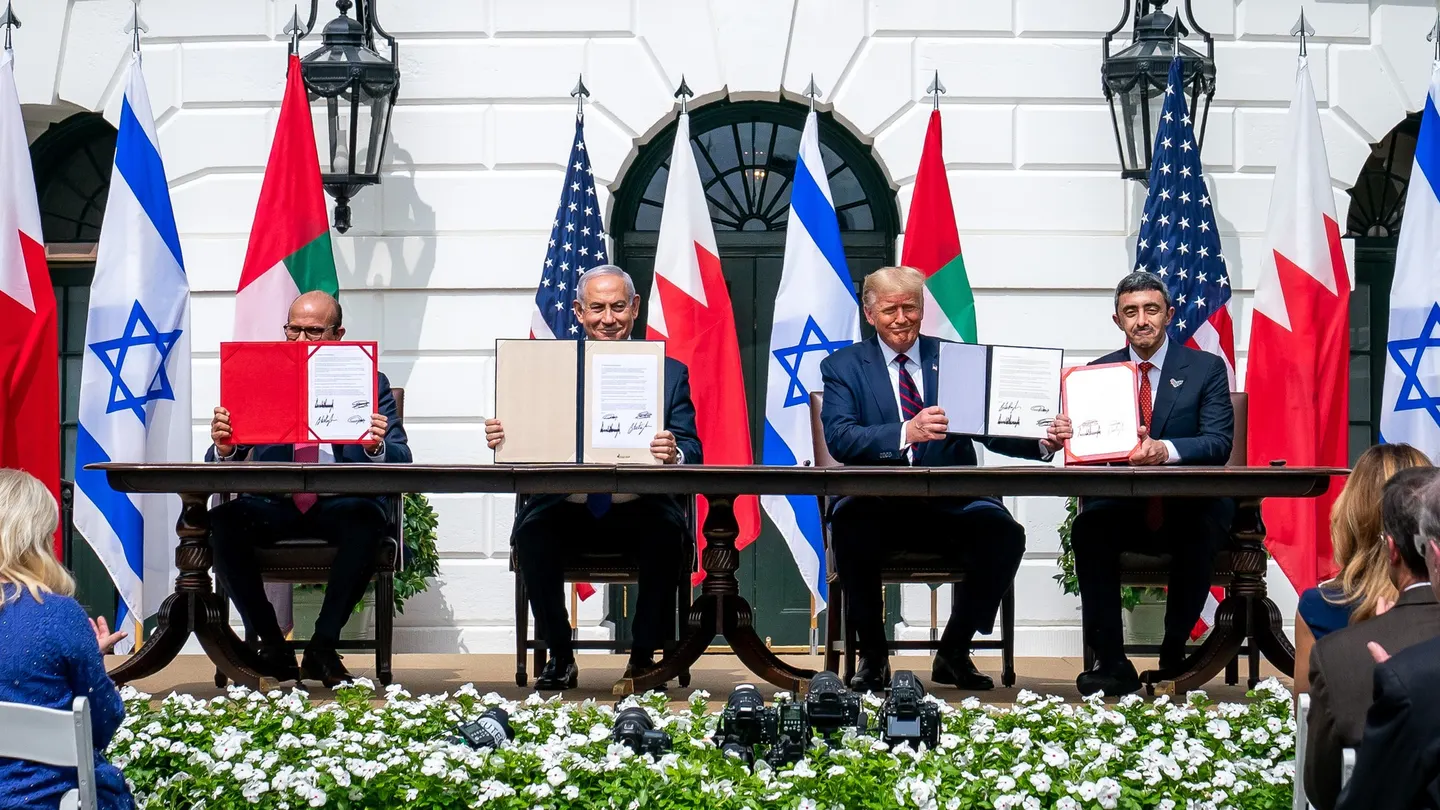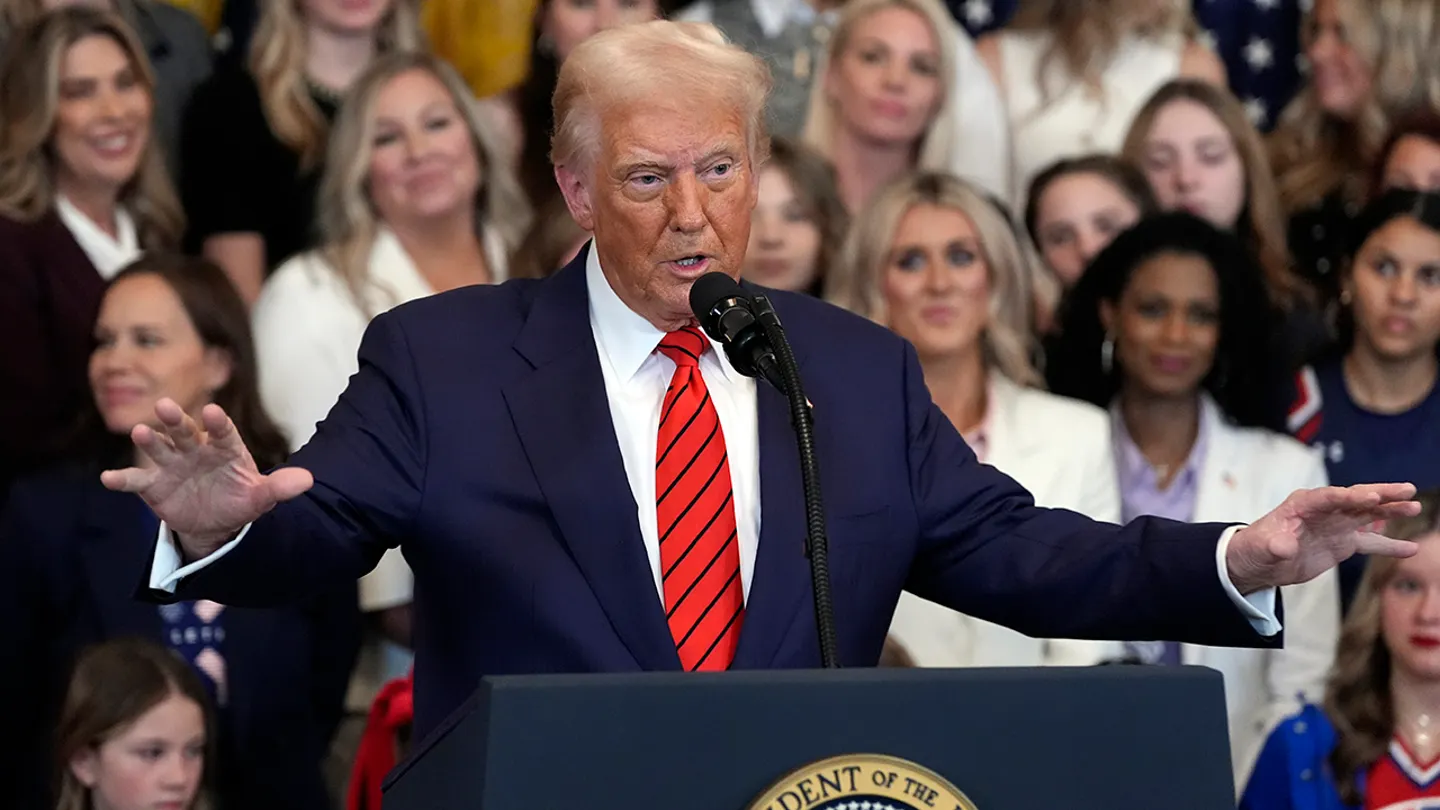By Emma Colton. Media: Fox News
ud, prosperous and successful Middle East where the United States and Middle Eastern nations are in cooperative relationships and where extremism is defeated in place of commerce and cultural exchanges,” White House press secretary Karoline Leavitt said Friday.
“This trip ultimately highlights how we stand on the brink of the golden age for both America and the Middle East, united by a shared vision of stability, opportunity and mutual respect, the president greatly looks forward to visiting with our brave men and women in uniform at our U.S. air base in Qatar throughout this trip.”
Trump is slated to depart Washington, D.C., on Monday for visits to Saudi Arabia, Qatar and the United Arab Emirates. The president disclosed last week, when Canadian Prime Minister Mark Carney visited the White House, that he would be making “a very, very big announcement” ahead of his departure for the Middle East, but has not shared additional details.

“We’re going to have a very, very big announcement to make, like as big as it gets,” Trump told reporters in the Oval Office on Tuesday. “And I won’t tell you on what… and it’s very positive.”
“It is really, really positive. And that announcement will be made either Thursday or Friday or Monday before we leave,” Trump added. “But it’ll be one of the most important announcements that have been made in many years about a certain subject, very important subject. So you’ll all be here.”
Trump’s four-day trip abroad comes amid continuing war between Israel and Hamas, ongoing U.S.-Iran negotiations over Iran’s nuclear program, and reported plans to broaden his first administration’s Abraham Accords, which normalized diplomatic relations between Israel and Arab League nations such as the United Arab Emirates.

Under his first administration, Trump made his maiden voyage as president in 2017 to Saudi Arabia and Israel, before also traveling to Europe. The trip to the Middle East this week is billed as Trump’s first major overseas travel as president, though Trump also visited Rome late last month for Pope Francis’ funeral at the Vatican.
“Eight years ago, President Trump’s first trip was to this same region of the world, where he introduced his bold peace-through-strength foreign policy strategy. On that trip, the president laid out his goal of eradicating terrorism and extremism in the region, which he successfully accomplished over the course of his administration with the total defeat of ISIS and the historic signing of the Abraham Accords,” Leavitt told the media on Friday.
As Trump prepares to depart for the Middle East, administration officials spent the weekend in Geneva negotiating with Chinese counterparts to iron out a potential trade agreement.
Early Monday morning, the U.S. and China released a joint statement revealing that “the United States and China will each lower tariffs by 115% while retaining an additional 10% tariff,” according to the White House.
The U.S. imposed tariffs as high as 145% on Chinese goods earlier this year as the president looks to bring parity to the nation’s chronic trade deficit with foreign countries.
The tariffs on China followed Trump’s April 2 “Liberation Day” trade announcement, when he unveiled his reciprocal tariff plan on dozens of nations, including China. He paused all the reciprocal tariffs except on China later that month as countries requested to make trade deals. China, meanwhile, imposed their own tariffs on the U.S., including a 125% duty tax on U.S. goods.
Treasury Secretary Scott Bessent and U.S. Trade Representative Jamieson Greer met with Chinese trade officials in Switzerland this weekend, where Trump said “great progress” was made between the two countries.
“Many things discussed, much agreed to. A total reset negotiated in a friendly, but constructive, manner. We want to see, for the good of both China and the U.S., an opening up of China to American business. GREAT PROGRESS MADE!!!” he posted on Truth Social on Saturday.
Bessent added on Sunday that the leaders from both countries held “productive” talks, before revealing early Monday that tariffs imposed on both countries would be reduced for a 90-day period.
The Trump administration is slated to begin welcoming White Afrikaners from South Africa to the U.S. this week as they face “unjust racial discrimination” in their home country, according to the administration.
“What’s happening in South Africa fits the textbook definition of why the refugee program was created,” White House deputy chief of staff Stephen Miller told reporters Friday. “This is persecution based on a protected characteristic – in this case, race. This is race-based persecution.”
Trump signed an executive order in February that cut U.S. funds to the South African government as well as an offer to Afrikaners allowing them to move to the U.S. under refugee status.
Trump signed the EO targeting South Africa after the country enacted a law allowing the government “to seize ethnic minority Afrikaners’ agricultural property without compensation” and the country taking “aggressive positions toward the United States and its allies, including accusing Israel.”
“The Secretary of State and the Secretary of Homeland Security shall take appropriate steps, consistent with law, to prioritize humanitarian relief, including admission and resettlement through the United States Refugee Admissions Program, for Afrikaners in South Africa who are victims of unjust racial discrimination,” Trump’s order said.
“Such plan shall be submitted to the President through the Assistant to the President and Homeland Security Advisor,” he said.

Trump is expected to return from his trip to the Middle East on Friday, May 16.
As of Sunday, Trump has signed 147 executive orders since his inauguration in January, including a whopping 143 within his first 100 days as president, dwarfing the number of EOs signed by his predecessors stretching back to at least President Franklin D. Roosevelt.




























































































Discussion about this post